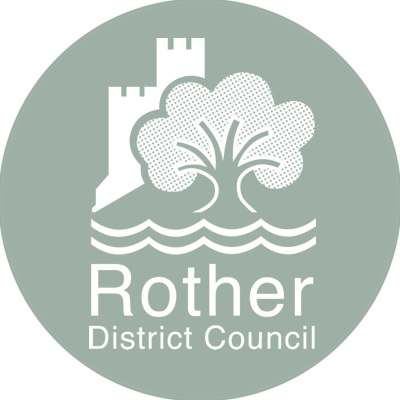Agenda item
Progress on the Environment Strategy (2020)
Minutes:
Members received the report of the Environment and Policy Manager, which outlined progress made on implementing the Environment Strategy (ES) since her appointment in August 2020. The Climate Change Steering Group (CCSG) had been established by Cabinet in September 2019.
The priorities within the scope of the ES were: Air quality, active/ sustainable transport; sustainable waste management; sustainable energy; protecting and enhancing biodiversity; construction and existing buildings; and environmentally friendly Council. The Key Performance Indicators (KPI) for the ES were: building environmental evidence/driving environmental improvements; and partnership working.
The ES had a dual focus, i.e. it was both internally and externally facing. Internally, linkages had been explored between the ES’s priorities with existing Council activities and it was recognised that existing staff and functions were already delivering on aspects within the identified priority areas. Several resource gaps had been identified, representing risks for the organisation in terms of delivering the ES, which had been reported to the CCSG on 25 November 2020.
Externally, the ES had a strong commitment to working with partners in order to meets its goals. The core stakeholders included local environmental groups, local volunteer environmental officers, Rother parish and town councils and Rother Association of Local Councils (RALC). It represented a core group of circa 250 stakeholders.
The ES set out partnership working as a key approach to its delivery and ten partnership projects had been initiated within the first six months of the ES’s delivery, which met the ES’s KPIs. Projects included four short 30-day placements that were part of MSc courses at University of Brighton, benefiting from the Council’s membership with the Clean Growth Hub. Two were large scale projects of up to 12 months duration: Bexhill i-tree study and tree planting strategy, and the Electric Vehicle (EV) charging project for Council-owned car parks. An overview of the projects and activities was detailed at Appendix A to the report.
An external communications specialist had been appointed to create a framework and a plan for communication and engagement, working closely with the Communications Team at East Sussex County Council. A progress overview was contained within Appendix B to the report.
The draft timetable for the new Local Plan saw adoption towards the end of 2023 and a dialogue with Planning Policy colleagues was already underway, aiming to develop robust linkages between the ES and the environmental evidence underpinning the new Local Plan. Two of the projects which had already been initiated under the ES would inform the new Local Plan, notably the Bexhill i-tree study and the MSc placement on onshore and offshore wind mapping.
Discussions with Democratic Services and the Corporate Management Team had been initiated to modify the report template used to draft reports for committee meetings, to include Environmental and Sustainability Implications. A clear guidance for staff with respect to these sections of the report template would be developed to ensure that all proposals being put forward were robust and aligned with the Council’s climate emergency commitments and the visions and aims articulated within the ES and any other relevant strategic and policy documents.
Improved green spaces were specified as outcomes under the draft Corporate Plan, to maximise carbon reduction effectiveness. The Council’s grounds maintenance 10-year contract was nearing its end and the Environment and Policy Manager had given advice to Neighbourhood Services on the contract review and attended a meeting with the external contractor on 28 January 2021. A soft market analysis was being carried out by the Neighbourhood Services team and time would be required to understand the various schemes available and how they aligned with the ES. The role of the Council within the process would need to be reviewed following the establishment of the Bexhill Town Council and discussions on devolvement of services.
Members suggested, and agreed, that if it was not possible to set up a working group to review management of green spaces within Rother at the current time, that Cabinet be recommended to add the work to that of the CCSG.
The ES’s budget for 2020/2021 had been spent on Solar Together Sussex, Bexhill i-Tree study and the external communications specialist support. Criteria would be developed on how ES funding would be spent in subsequent years. The CCSG and local environmental organisations would advise Cabinet on what initiatives the ES budget would support.
The progress made in the first six months was a testament to the commitment to the climate emergency agenda within the Rother District. It showed that partnership working was possible and that it was the right approach for the ES’s delivery.
RESOLVED: That:
1) the progress made against the Environment Strategy (2020) included in the Appendices A and B to the report be noted;
2) future progress reports on the Environment Strategy would include reporting from Services of the Council measured against the Key Performance Indicators, as the Strategy was embedded throughout the organisation;
3) a review of the Environment Strategy be undertaken annually; the review completion to coincide with the Strategy’s adoption date in September 2020 and consideration be given to changes to the vision as recommended by the Overview and Scrutiny Committee; and
4) Cabinet be requested to consider adding a review of the grounds maintenance contract to the work of the Climate Change Steering Group.
(Councillor Courtel declared a Personal Interest in this matter in so far as he was a member of the Bexhill Environment Group and Greenpeace and in accordance with the Members’ Code of Conduct remained in the meeting during the consideration thereof).
Supporting documents:
